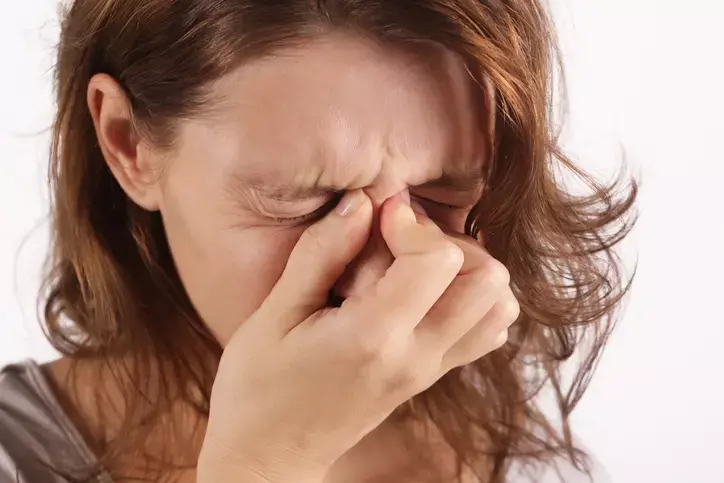- Home
- Medical news & Guidelines
- Anesthesiology
- Cardiology and CTVS
- Critical Care
- Dentistry
- Dermatology
- Diabetes and Endocrinology
- ENT
- Gastroenterology
- Medicine
- Nephrology
- Neurology
- Obstretics-Gynaecology
- Oncology
- Ophthalmology
- Orthopaedics
- Pediatrics-Neonatology
- Psychiatry
- Pulmonology
- Radiology
- Surgery
- Urology
- Laboratory Medicine
- Diet
- Nursing
- Paramedical
- Physiotherapy
- Health news
- Fact Check
- Bone Health Fact Check
- Brain Health Fact Check
- Cancer Related Fact Check
- Child Care Fact Check
- Dental and oral health fact check
- Diabetes and metabolic health fact check
- Diet and Nutrition Fact Check
- Eye and ENT Care Fact Check
- Fitness fact check
- Gut health fact check
- Heart health fact check
- Kidney health fact check
- Medical education fact check
- Men's health fact check
- Respiratory fact check
- Skin and hair care fact check
- Vaccine and Immunization fact check
- Women's health fact check
- AYUSH
- State News
- Andaman and Nicobar Islands
- Andhra Pradesh
- Arunachal Pradesh
- Assam
- Bihar
- Chandigarh
- Chattisgarh
- Dadra and Nagar Haveli
- Daman and Diu
- Delhi
- Goa
- Gujarat
- Haryana
- Himachal Pradesh
- Jammu & Kashmir
- Jharkhand
- Karnataka
- Kerala
- Ladakh
- Lakshadweep
- Madhya Pradesh
- Maharashtra
- Manipur
- Meghalaya
- Mizoram
- Nagaland
- Odisha
- Puducherry
- Punjab
- Rajasthan
- Sikkim
- Tamil Nadu
- Telangana
- Tripura
- Uttar Pradesh
- Uttrakhand
- West Bengal
- Medical Education
- Industry
Dupilumab Improves Sleep Quality among Chronic Rhinosinusitis patients with nasal polyps

Chronic rhinosinusitis with nasal polyps (CRSwNP) has long been a source of discomfort for many, impacting patients' quality of life and sleep. Now, a promising development offers new hope. A recent study published in the Annals of Allergy, Asthma & Immunology Journal found that Dupilumab, a monoclonal antibody, can significantly improve the sleep quality of CRSwNP patients in real-life settings.
The most common form of CRSwNP is characterized by type 2 inflammation, marked by increased levels of interleukin (IL)-4, IL-5, and IL-13. Dupilumab works by targeting the IL-4 receptor-α, inhibiting signals from both IL-4 and IL-13, and has recently received approval for CRSwNP treatment.
In a study involving 29 consecutive patients, the impact of Dupilumab on sleep quality was examined over a three-month period. Before treatment, these patients reported sleep quality issues, with excessive daytime sleepiness affecting 24.1%, 79.3% reporting insomnia, and a staggering 93.1% experiencing globally impaired sleep quality.
However, the results were highly encouraging. After just one month of Dupilumab treatment, patients reported significant improvements across various sleep quality parameters, as measured by the Epworth Sleepiness Scale (ESS), Insomnia Severity Index (ISI), Pittsburgh Sleep Quality Index (PSQI), and the sinonasal outcome test 22 (SNOT-22) sleep domain. Importantly, the proportion of patients suffering from insomnia and globally impaired sleep quality decreased, providing a ray of hope for those living with CRSwNP.
This research underscores the profound impact CRSwNP has on sleep quality, with a particular emphasis on insomnia. The rapid improvement observed in patients undergoing Dupilumab treatment highlights the need to consider sleep disturbances as an essential outcome in the treatment of CRSwNP. It signifies a significant breakthrough, promising a better quality of life and better sleep for those affected by this condition.
Source:
Ferri, S., Montagna, C., Malvezzi, L., Pirola, F., Russo, E., Racca, F., Messina, M. R., Del Moro, L., Mercante, G., Spriano, G., Canonica, G. W., Paoletti, G., & Heffler, E. (2023). Sleep quality burden in chronic rhinosinusitis with nasal polyps and its modulation by dupilumab. In Annals of Allergy, Asthma & Immunology. Elsevier BV. https://doi.org/10.1016/j.anai.2023.08.594
Neuroscience Masters graduate
Jacinthlyn Sylvia, a Neuroscience Master's graduate from Chennai has worked extensively in deciphering the neurobiology of cognition and motor control in aging. She also has spread-out exposure to Neurosurgery from her Bachelor’s. She is currently involved in active Neuro-Oncology research. She is an upcoming neuroscientist with a fiery passion for writing. Her news cover at Medical Dialogues feature recent discoveries and updates from the healthcare and biomedical research fields. She can be reached at editorial@medicaldialogues.in
Dr Kamal Kant Kohli-MBBS, DTCD- a chest specialist with more than 30 years of practice and a flair for writing clinical articles, Dr Kamal Kant Kohli joined Medical Dialogues as a Chief Editor of Medical News. Besides writing articles, as an editor, he proofreads and verifies all the medical content published on Medical Dialogues including those coming from journals, studies,medical conferences,guidelines etc. Email: drkohli@medicaldialogues.in. Contact no. 011-43720751


